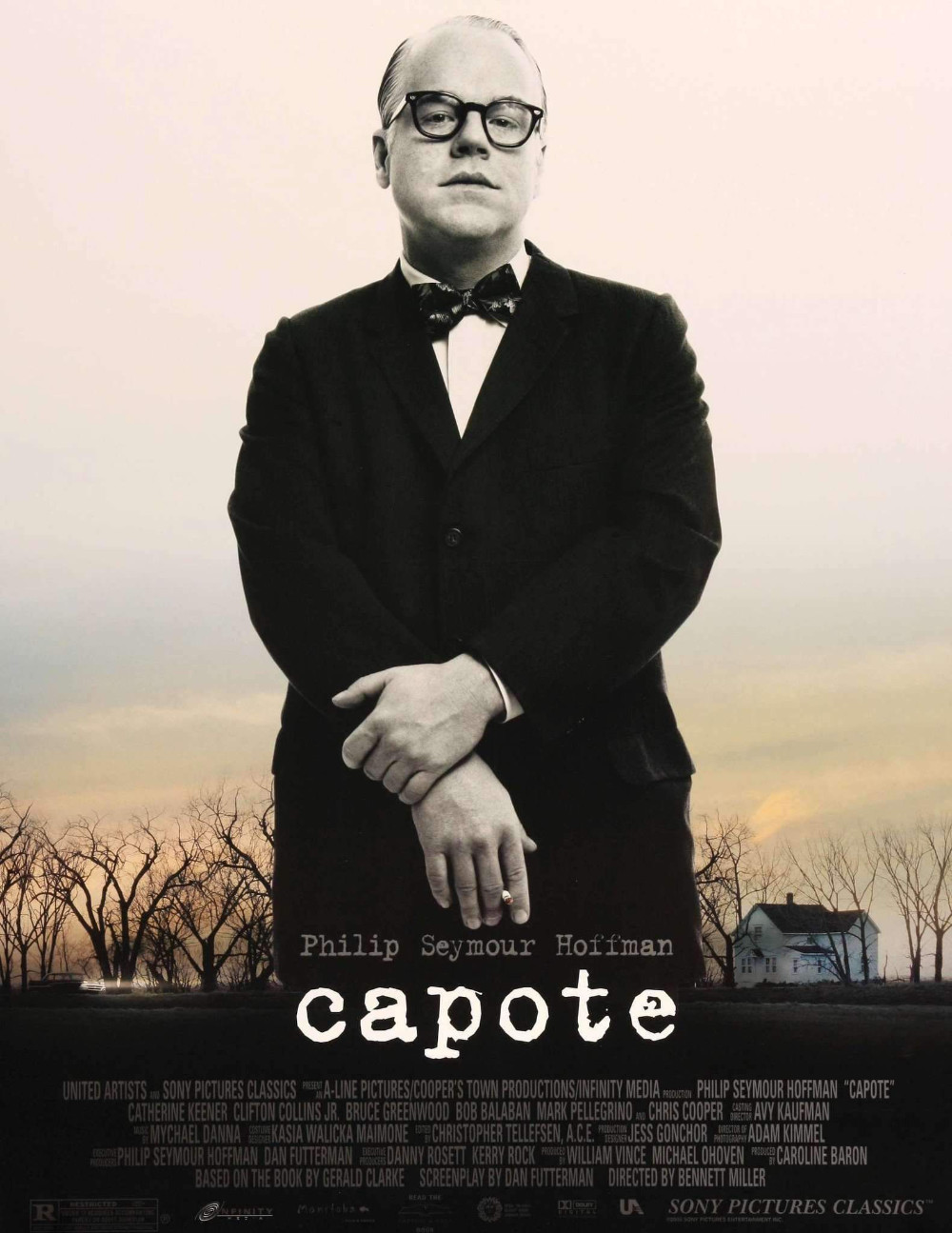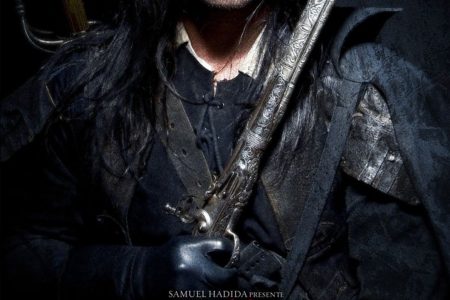Capote is a well-made, intelligent, well-acted piece of cinema that tells an interesting story about a writer without just it being about a man at a typewriter, looking out the window and smoking. However, like the central conflict at the heart of the film, there is an issue of detachment. The film follows the life of Truman Capote as he decides to write about the Clutter murders in rural Kansas by two men, Perry Smith and Dick Hickock. In doing so, he becomes very close to Smith, as he tries to fathom what happened on the night of the killings, in order to write the non-fiction novel that will become In Cold Blood.
Phillip Seymour Hoffman is a wonderful actor and is brilliant as Capote. The little twitches and affectations, as well as the singular voice, are just part of the mask he puts on to portray and inhabit the multi-faceted character of the famous author. The script, building out of two chapters in Gerald Clarke’s biography of Capote, is spare and lean, with occasional flashes of humour to help the audience deal with the relationship that develops between an intelligent man and Smith, an unusual character with a sharp mind but a troubled background, who shot a family with a shotgun after tying them up to rob their house.
The film is told well, with great support in Catherine Keener, as Harper Lee, who was Capote’s research assistant during the initial investigations into the murders, and Chris Cooper as the policeman in charge of hunting down the killers. However, the apparent detachment, perhaps meant to reflect Capote’s trouble in dealing with the writing of the book (we see him in anguish as the killers have several appeals because it means that he doesn’t have an ending to his book yet) compared with his more-affected approach to the world of literature, gives a cold feeling to the movie. This may be necessary to reflect the winter setting of most of the film and the subject of the story, but when a film can’t warm up when Capote is in Spain to write, then it leaves a curious sensation. It feels like a film that is made to make an actor in a central performance look good, rather than telling the story itself. This is only a minor flaw in what is an otherwise good film. The humanising of the killer, the problems that Capote faces in the writing of his book (the last one he finished, although he lived another 20 years, passing away due to problems associated with drinking) and the towering central performance by Hoffman stay with you after the film has ended, wondering how we would react if we became that closely associated with a murderer.
Rating: DAVE




